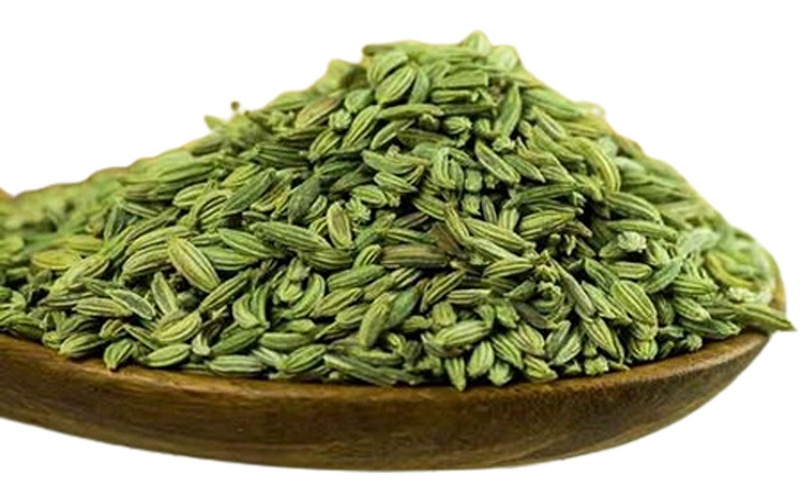Fennel, which is scientifically named as Foeniculum, is a kind of aromatic and medicinal plant. It is mainly raised for its seeds, which are rich in strategy elements. Those seeds, called saunf formally in India, are a popular spice and also serve as a mouth freshener plus herbal cure for banish bad breath. Now fennel seed farming has become a profitable business because the price of fennel seeds has been rising annually, both at home and abroad. Let us check below how fennel seeds India cultivation techniques gives economic returns along with major uses of fennel seeds.
Overview of the Fennel Crop
Fennel is a hardy herb with a perennial rootstock, but grown as an annual crop to produce seeds on a commercial scale. It prefers a temperate or subtropical climate and can stand being frozen slightly. This makes it particularly suitable for such regions as Bihar, Uttar Pradesh, Rajasthan and Gujarat as well as parts of Punjab, Maharashtra. In addition, India is a major producer and exporter of fennel seeds, which gives Indian farmers significant production advantages。
Climate and Soil Requirements
The crop flourishes growing on heavy loam or light silt soils which are well drained. The ideal pH is 6.5-8.0; heavy clay soils and water stagnation should by all means be avoided for preventing root diseases and stunted growth.
Before sowing, the land should be ploughed thoroughly until a fine is obtained and all weeds removed. Application of well-decomposed farmyard manure aids in improving soil fertility as well as moisture retention.
Sowing and Seed Treatment
High quality, disease free seeds should be kept in reserve for sowing. Early sowing allows good root establishment and helps the crop to utilize winter moisture while ensuring stable emergence to avoid gaps caused by late sprouting plants.
Using either row cultivation on the land direct seeding, or transplanting seedlings from a nursery to the field.
The first method tends to produce higher yields but it also means more work and time. Before sowing, the seeds should be pre-treated with bio fungicides or mild fungicides in order to prevent any soil borne diseases and ensure that the seed germinates healthily.
Fertilization and irrigation
Fennel will respond favorably to either organic or inorganic fertilizers. Soil testing indicates that nitrogen, phosphorus, and potassium should be adapted to give balanced fertilization. At the time of sowing, half the total amount of applied nitrogen along with all that is needed in phosphorus and potassium is put in. The rest is then applied during the growth phase of crop. As well as improving soil structure, adding organic fertilizer strengthens microbial activity. Irrigation is crucial to fennel production. After sowing the first irrigation is given. Subsequent watering are spaced anywhere from 10-15 days apart, depending on soil moisture and local climate. During the flowering and seed set phases special attention must be paid to maintaining moisture levels, as lack thereof will cut yields, though excess water is to be avoided lest lodging and fungal disease occur.
Weed and Pest Control
Weeds compete with the fennel for nutrients and thus hinder growth of this plant. It is farmers’ duty to weed or hoe their fields regularly.
Harvest and Yield
The general hesitation on its crops rests with how long it takes for fennel to ripen: about 140-180 days depending on the type and climate. Whether seeds are ready for harvest depends on their colour: they should be greenish-yellow and just beginning to dry out. Harvesting should be taken care of to avoid seeds falling off. The plants are cut, dried in the shade and threshed to obtain the seed. Clean seeds, graded seeds and stored to retain aroma, quality and shelf life.
Profitability and Market Prospects
Fennel seed is downed with strong demand from domestic food, pharmaceutical and herbal sectors. Organic fennel seeds fetch a premium price on both the domestic and foreign market. Fennel leaves and the tender stems can be sold for food or medicine as well as seeds. Cultivators with sound planning and sales networks can expect a good return on fennel production, particularly in dry or semi-arid areas.
Cleaning, sorting, roasting, and packaging can also improve income. Many Fennel Seeds India
Exporters of spices prefer contracted cultivation. This offers stability in picking prices and market protection measures.
Uses and Health Benefits
With their sweet smell and digestive properties, fennel seeds are popular. They are used as seasoning in curry, pickles, bakery items, and drinks. In both family kitchens and in local places catering for the public, fennel seeds are eaten as a mouth freshener: they seem to wash away whatever has come before.
In traditional Ayurvedic and herbal medicine, fennel seeds are used to aid digestion, dispel wind and lower acidity, ease bloating, and protect better respiratory health. It is an ingredient in cough syrups, herbal Teas, digestive tonics and health supplements. Fennel seed oil is used for aromatherapy, cosmetics and medicine formulations.
Conclusion
Fennel seed farming is both a lucrative and sustainable agricultural enterprise, which is particularly suitable for area with arid climate and well-drained soil. With the increase of natural spice and herbal health industry around the world, fennel cultivation provides hopeful door of income. By using quality seeds, scientific cultivation methods, timely irrigation, and control of pests, we can in hand a large quantity of good- to top-grade seeds annually. If the farmer decides to work with spice dealers, distributors, or organic buyers, Fennel Seeds India farming will bring a better return to him in order make stable income over the long haul.


